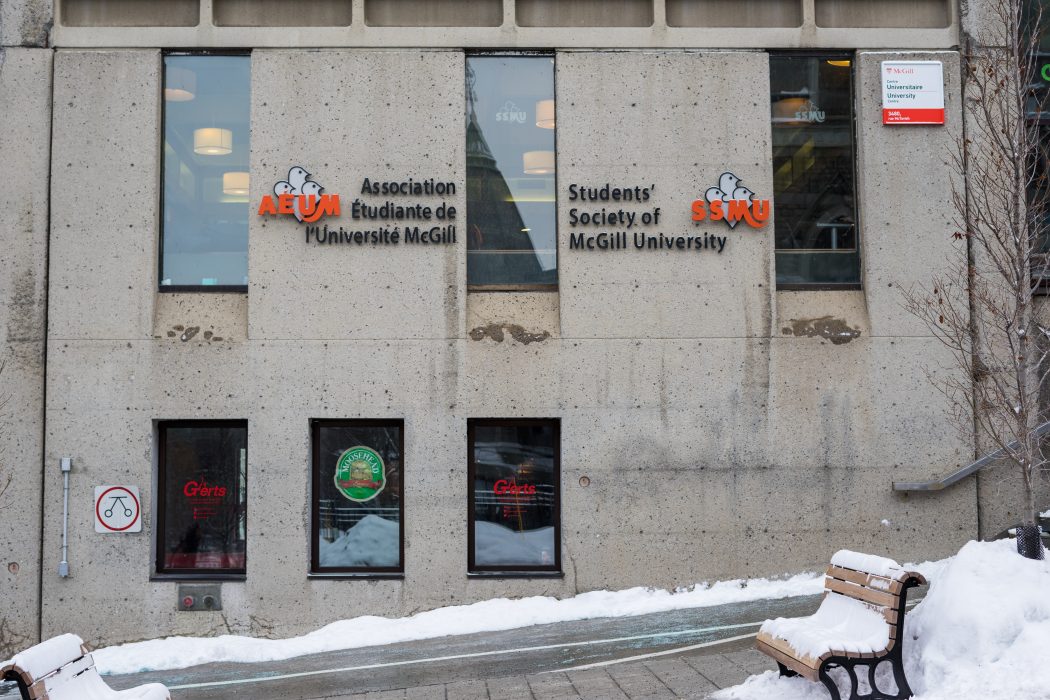On January 21, the Students in Mind (SIM) organization held their fifth annual mental health conference in the SSMU building. Created by McGill students for fellow students and other members of the community, the conference included panels, workshops, and speakers, covering a variety of areas concerning mental health issues.
The conference aims to give students an avenue to engage in various topics concerning mental health, to learn about resources on and off campus that provide mental health services, as well as to help foster a dialogue to reduce the stigma surrounding mental illness.
The day began with an address from the event’s organizing committee and was followed by a short presentation called Mental Health 101, given by committee member Julia Caddy, U0 Faculty of Arts. Following this, the 200 participants split off into the panels and workshops they had signed up for at the time of registration. Workshop topics included suicide prevention, self-care, and active listening.
The panel sessions, moderated by members of the organizing committee, addressed topics ranging from mental health and sexual assault to the prevalence of mental illness within racialized minorities. The panelists and workshop leaders included mental health professionals and scholars, students, as well as people involved in McGill organizations such as the Sexual Assault Centre of the McGill Student Society (SACOMSS) and the Social Equity and Diversity Education office (SEDE). The day ended with a performance from keynote speaker Beatrice Deer, a musician, Inuk activist, and mental health advocate.
Despite the presence of representatives from several campus organizations, SIM is an independent on-campus group, not affiliated with the McGill administration or the SSMU. President of the organizing committee, Alison Ross, U3 Faculty of Science, cited problems with McGill’s past handling of mental health problems as a reason for the conference’s founding.
“McGill’s administration, in the past years, has not done the best job of catering to students’ mental health needs” Ross explained. Despite McGill offering official mental health services, these students felt that they were insufficient and took matters into their own hands. “That was what pushed this conference forward in the first place,” said Ross, “a lack of space to discuss these things.”
Ross strongly expressed her belief that an event like the SIM conference is especially important at McGill. “McGill is such a highly competitive post-secondary institution, so there’s that academic stress aspect of it that just predisposes students to being so vulnerable to mental health problems,” she stressed. She also explained that age can play a role in vulnerability: “Our age bracket, 18 to 25, is the highest age category for the onset of mental illness.”
As SIM is a completely self-funded initiative, the organization relies on donations, grants, and crowd-funding, as well as a five-dollar fee for participants in order to cover the costs of the conference. However, the committee was determined not to have financial concerns get in the way of anyone wishing to attend. “This year was the first year we implemented a pay-as-you-can scheme,” Ross told The Bull & Bear, “so that if five dollars is a barrier for anyone coming, we accommodate them.”
The SIM conference stayed true to its intentions, reinforcing the idea that the most important thing is to continue the conversation about mental health issues. In her Mental Health 101 presentation, Julia Caddy explained that while one in five people struggle with their mental health, all people possess mental health. “If five out of five of us are affected by this topic,” she asked, “isn’t it time we start talking?”









—-reduce the stigma surrounding mental illness ??
What a curious remark.
Editors:
You do not abet people who direct that prejudice, and you certainly do not want to aid anyone wanting to keep some of it.
Harold A. Maio, retired mental health editor